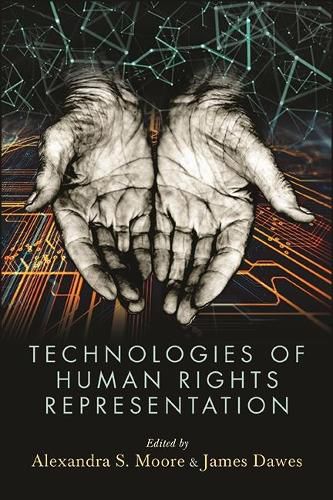Readings Newsletter
Become a Readings Member to make your shopping experience even easier.
Sign in or sign up for free!
You’re not far away from qualifying for FREE standard shipping within Australia
You’ve qualified for FREE standard shipping within Australia
The cart is loading…






The speed of technological development, from cell phones to artificial intelligence, opens up exciting new opportunities for promoting human flourishing. It also raises grave risks, threatening not only personal privacy and dignity but also our collective survival. Technologies of Human Rights Representation brings together three fields of research critical to securing our future: changing technologies, human rights, and representation. For each of these fields, this book asks key questions: How can we open the black box of technological advances so that we can more fully understand their effects upon our lives? What can we do to make sure that these effects align with the values of human rights? And how does the way we talk about technology and rights-from military reports and corporate marketing to human rights reports and poetry-amplify or diminish our capacity both to understand and to control what happens next? Contributors from anthropology, communications, criminology, global studies, law, literary and cultural studies, and women and gender studies bring diverse methodological approaches to these crucial questions.
$9.00 standard shipping within Australia
FREE standard shipping within Australia for orders over $100.00
Express & International shipping calculated at checkout
Stock availability can be subject to change without notice. We recommend calling the shop or contacting our online team to check availability of low stock items. Please see our Shopping Online page for more details.
The speed of technological development, from cell phones to artificial intelligence, opens up exciting new opportunities for promoting human flourishing. It also raises grave risks, threatening not only personal privacy and dignity but also our collective survival. Technologies of Human Rights Representation brings together three fields of research critical to securing our future: changing technologies, human rights, and representation. For each of these fields, this book asks key questions: How can we open the black box of technological advances so that we can more fully understand their effects upon our lives? What can we do to make sure that these effects align with the values of human rights? And how does the way we talk about technology and rights-from military reports and corporate marketing to human rights reports and poetry-amplify or diminish our capacity both to understand and to control what happens next? Contributors from anthropology, communications, criminology, global studies, law, literary and cultural studies, and women and gender studies bring diverse methodological approaches to these crucial questions.